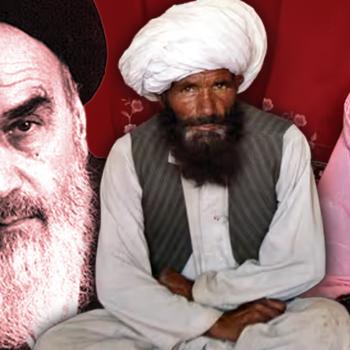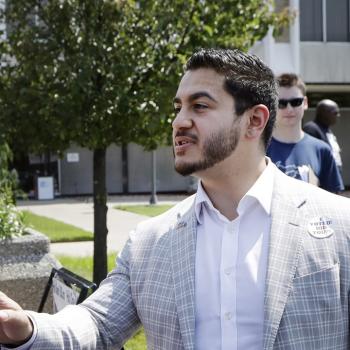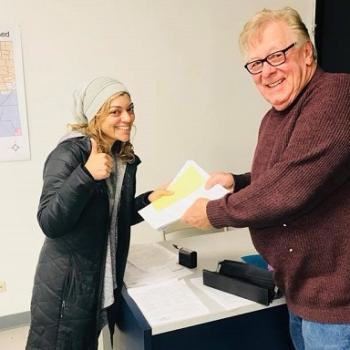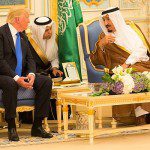 |
|
Dr. Abdulaziz Sachedina
|
These are turbulent times for both Iran and Iraq, with both internal and external forces vying to shape the future of both countries. What challenges and opportunities lie ahead for both countries? How will human rights and the will of the people fare in the coming years? alt.muslim’s Zahir Janmohamed interviewed Dr. Abdulaziz Sachedina, who is a Professor of Religious Studies at the University of Virginia. He is currently on a one-year Sabbatical in Iran, where he is teaching in the Department of Theology and Islamic Studies at the Ferdowsi University of Mashhad. He has most recently been active as a member of international advisory board for drafting Iraq’s constitution.
![]() My first question is about Iran and the elections. Mahmoud Ahmadinejad has been characterized an anti-reform hardliner and perhaps one of the people who participated in the hostage crisis. What is your assessment of Ahmadinejad and how the elections were conducted?
My first question is about Iran and the elections. Mahmoud Ahmadinejad has been characterized an anti-reform hardliner and perhaps one of the people who participated in the hostage crisis. What is your assessment of Ahmadinejad and how the elections were conducted?
Dr. Abdulaziz Sachedina: It is true that Ahmadinejad is not that well known in Iran except in his capacity as the mayor of Tehran. His policies are unfolding gradually because during the campaign his statements were not very different from statements made by other candidates. But he is certainly not ultra-conservative the way he has been portrayed in the US media. If anything, his background as a basiji (those committed to deliver services as part of their religious commitment, including, if necessary, in defense of the motherland), makes him prone to seek quick solutions to the pressing problems of corruption that face the entire government machinery in Iran.
We do know that he is a deeply religious man but that does not mean that he is conservative. He might even prove to be more progressive. So it is rather a media concoction in some ways and a speculation that since he comes out of that particular background basiji (who also happen to be diehard supporters of the religious establishment), that he too must be ultraconservative.
Now as for the elections, they are a show of the people’s power and their effort to tell the religious establishment that they cannot impose their candidate upon them. The electoral made a clear statement to the government, and to the religious establishment that they would not abide by their wishes. The religious establishment wanted to see (former President Akbar Hashemi) Rafsanjani come to power, but the people voted him out of the candidacy. There is no doubt that as an elderly statesman Rafsanjani still wields lot of clout and influence in Iranian politics.
So Ahmadinejad’s election is quite unique. Tehran, which determines the major trends in the national politics saw quite a turn out of women voters who voted for Ahmadinejad despite speculation that he might bring stricter rules about their head scarves. The reason was that even the women wanted to make a statement to the religious establishment that they would not listen to them.
We can see that democratic culture in Iran has really taken deeper roots in the last twenty five years, that is, since the revolution in 1978-79. Imam Khomeini, who started this whole movement of Islamic republic, has been in a way a prelude to ultimate democratization and sensitization about the people’s political rights. After all it is an exercise of political rights that people can vote and tell the government that they do matter.
As for the election campaigns, what we noticed was that Rafsanjani had to plead to the people just as anyone else would plead for the vote of the people. This was clearly unthinkable that a member of the religious establishment a conservative, turbaned politician would have to plead to the people like any other candidate to come to power.
In the beginning of the revolution, it was almost assumed that the religious class will always hold on to power, limitlessly and endlessly. It was quite revealing that during the last elections people showed what they could do exactly as predicted by Imam Khomeini in his assessment of the power of the populace.
What I have discovered up to now in the choice of the candidates for the cabinet (of Ahmadinejad) is not conservatism. Rather it is practical politics, giving chance to those who were marginalized and did not have a voice in the previous administrations. So, for example, the chancellor of Kirman University was appointed as a new minister of education. Certainly he did not have the experience and was not confirmed by the parliament, but it shows that Ahmadinejad chose among those who are ordinary, decent human beings, representing the simple and yet credible voices in the society.
In fact, when Ahmadinejad held his first cabinet meeting Mashad, it was held on the floor. All the ministers sat around and it showed the style of Ahmadinejad’s administration, his devotion to simplicity, and his ability to earn the respect of the people. Ordinary people of Iran are very excited to see a change because for long the religious class behaved like a special class with special privileges – their own chauffeurs, and all other trappings that go with political power and economic corruption. It is refreshing to find an ordinary, car-driving mayor of Tehran, who holds cabinet meetings on the floor, and who now has become the President. It’s a kind of image that is unthinkable in the Third World politics.
The whole election process shows a peaceful transference of power, which does not happen often in the Third World countries. What it demonstrates is the people’s involvement in the political process and in the deeply rooted democratic culture that influences them to actively seek change through the ballot.
![]() One of the critiques when the words Iran and democracy are used in the same sentence is what about women? People wonder how a country be considered democratic if that government imposes a dress code upon its women? First on a theoretical level, can a country be considered democratic and also impose the hijab? Second, do you think there will be a reexamination of hijab under Ahmadinejad? It appears that many women would like to see this occur.
One of the critiques when the words Iran and democracy are used in the same sentence is what about women? People wonder how a country be considered democratic if that government imposes a dress code upon its women? First on a theoretical level, can a country be considered democratic and also impose the hijab? Second, do you think there will be a reexamination of hijab under Ahmadinejad? It appears that many women would like to see this occur.
AS: I think that we miss a point when we speak about the veil or hijab as a symbol of suppression and oppression of women’s identity, etc. Do women in Iran see it that way? This is an important issue that we have not tried to understand or discover. I don’t think that democracy is somehow sacrificed if the majority of the people decide that this is the way they want their public space to be occupied by women who observe modesty code. Moreover, I don’t think it is an issue that harms the democratic principles of legal equality.
But there is a lot of public debate in Iran on the hijab and the notion of whether anyone can impose it, even what is regarded as minimum hijab. The modern hijab that is prevalent in Iran among the upper and well-to-do classes does not even qualify as a religiously ordained hijab anymore. Since Khatami took office what constitutes the hijab has been gradually relaxed in Iran what constitutes “minimum” hijab according to the jurists is gradually disappearing.
The question now for the women is: Would this relaxed attitude to hijab be reversed under Ahmadinejad? I don’t think that the gains that women had under the Khatami regime would be taken away by the new regime or his cabinet. After Ahmadinejad’s electoral victory, some of his supporters wanted greater monitoring on women’s dress but Ahmadinejad immediately rejected this as intruding in the autonomy of women.
![]() Iran is criticized for two things. First the treatment of women and second the treatment of its minorities, specifically Sunnis, Bahais, and Jews. Do you see an attempt to address abuses against these communities within Iran?
Iran is criticized for two things. First the treatment of women and second the treatment of its minorities, specifically Sunnis, Bahais, and Jews. Do you see an attempt to address abuses against these communities within Iran?
AS: Certainly. I think there is lot of sensitivity and public debate about human rights and what Iran is supposed to do to address these concerns.
On the one hand, when the state becomes ideological and it adopts a particular school of thought, it creates automatic mechanisms of discrimination against those who might not be contributing towards its ideological stance. I am referring to the Sunni community that finds itself having to bow down to the requirements of the state ideology which is Shiite. In the schools, for example, there is freedom to teach Sunni Islam but that is curtailed in some school systems. In other words, the state curriculum is not inclusive when it comes to religious instruction.
Now in other parts, in Turkmen areas of the Caspian provinces, for example, this is not the case. So in some parts where the population is Sunni the rights of the minority are observed and in other places they are not. There is a need for consistency in this matter. After all, Islamic Umma, includes all Muslims, and not just the Shiite or the Sunni.
Recently, I was told by the Sunni students in the Ferdowsi University that the only Sunni mosque in Mashhad, located in the Afghan refugee area was destroyed by the Iranian government. After speaking to the mayor, following my return from Washington, I was informed that the mosque was used by al-Qa’ida and Taleban supporters to train the militants. As soon as that was discovered Iranian authorities took steps and destroyed the mosque. When I objected to this treatment of the mosque, the mayor informed me that the precedent was not very different from the Prophet’s action when the Masjid al-Dirar was built in Medina to divide Muslims and spread sedition. Whether the precedent in the early history of Islam serves the action taken in Mashhad or not, it certainly shows the government’s deep seated suspicion of the Afghan refugees, who happen to be Sunni in this particular area, and their link to al-Qai’da and Taleban militants, and hence, its harsh reaction to the link.
As far as Jewish communities are concerned, I think Jews fare well in Iran from all the evidence that we have. They have their businesses protected. They have representation in the parliament. And their places of worship are protected because the shariah affords them a clear status as a People of the Book. If there are instances of violation of their rights, they occur at the level of the population when people take law in their own hands.
When it comes to Bahais, they are not recognized as a religious minority; so they really stand outside any legal framework which is afforded to other minorities. But, according to the recent developments in the political culture of Iran, the Bahais are now actively engaged in preaching their religion, however discreetly. So this is a new trend.
![]() Do think that improvements still need to be made in the treatment of Bahais?
Do think that improvements still need to be made in the treatment of Bahais?
AS: There should be an improvement, of course. Part of the problem is a conceptual description of the Bahais as being originally a dissenting group from Islamic umma, hence, termed as apostates. There has to be a clear category of affording them a religious minority status and accepting Bahaism as another religion. Many of the ulama consider Bahais as Shiites who have seceded from the Shia community, and therefore, they are legally classified as murtad, or apostates. It is this perception and characterization that blocks their acceptance as a fully respected minority community. Since Bahais regard themselves as a separate religion, then I think the ulama have to come to grips with this reality from a legal stance and afford them a status of religious minority.
![]() One of the challenges in speaking about Iran is that very little is known about Iran. What we do hear are the experiences of the Iranian Diaspora that came during the revolution or from the clerical class who are often quoted in the US media. So the discussion is polarized and I would argue, misinformed by both “sides.” What can be done to add more complexity to discussions of Iran yet still remain critical?
One of the challenges in speaking about Iran is that very little is known about Iran. What we do hear are the experiences of the Iranian Diaspora that came during the revolution or from the clerical class who are often quoted in the US media. So the discussion is polarized and I would argue, misinformed by both “sides.” What can be done to add more complexity to discussions of Iran yet still remain critical?
AS: There are two elements that are very much the source of misinformation about Iran. One is the expatriate community that was under the shah a privileged class of the society, who lost property, and even members of their families, who were killed, or have been imprisoned. All these things have added to their bitterness against the present regime; so when they speak about Iran they speak nothing but negatively. And partly it is negative propaganda by them trying to show the worst possible image of Iran that has been picked up by the media. They hate the religious establishment and they make sweeping statements about the entire nation, including Islam. That’s one source of misinformation.
The second reason is the political assessment of the US government. Under the Bush administration, Iran is characterized as part of the “axis of evil.” Since the time the hostages were taken in 1979-80, that negative evaluation of Iran has remained in the collective subconscious of America. It plays itself out in different ways and the US foreign policy continues to see Iran as anti-American, anti-Israel and determines American relation to Iran accordingly.
But Iran is a strategic country in that region. It shares border with Iraq, with Afghanistan and Iran has remained neutral in the affairs of Afghanistan and Iraq and this is never acknowledged in the State Department. Iran could unsettle Iraq much easily than Washington is willing to concede. It has deep cultural and religious roots in Iraq. And, yet, we have seen nothing but non-interventionist policies from Tehran.
![]() While there seems to be a rise throughout the Muslim world in anti-Americanism, in Iran there appears to be an effort to push towards warmer relations with America, especially on the part of the youth. What do you make of this?
While there seems to be a rise throughout the Muslim world in anti-Americanism, in Iran there appears to be an effort to push towards warmer relations with America, especially on the part of the youth. What do you make of this?
AS: The Iranians love America but they hate the American administration and its policies. In the last election, one of the internal debates was whether the people of Iran should vote or not. Many people in Iran did want to vote because they view the present government as having no legitimacy. One of the ways of protesting this illegitimacy was abstaining to participate in the political process under this regime.
However, and rather ironically, with one negative statement of Mr. Bush that Iranian elections were undemocratic and that the people should not vote for a theocracy, the Iranian people were outraged. Their voted and voted in millions to tell Mr. Bush: ‘We will go and vote just because America does not want us to vote.’ Even those who are opposed to affording the Iranian government legitimacy went out and voted for this government. So it is a reaction to what America does.
But the criticism towards America is actually towards its policies, not its people. Iranians love America because there are thousands of Iranians here. Often very religious people tell me that the way Americans behave is closer to true Islam than the way Iranians behave in Iran. ‘We have Islam but we do not behave as Muslims,’ they say. ‘And Americans don’t have Islam but they behave as Muslims.’ Is this true, they ask me? My response is always to the point that there are so many good things in America that reflect a better understanding of Islam.
![]() Do you think the stern imposition of Islam in Iran turns people away from Islam?
Do you think the stern imposition of Islam in Iran turns people away from Islam?
AS: Practically it has turned away the youths from Islam. The Iranian public is deeply religious and spiritual, including the youths. There is a deep religious feeling among the youth and yet they do not like the official religiosity of the state because that Islam is being imposed on them and they are resisting it.
I would say that this is a dangerous trend. By identifying Islam totally with the members of religious establishment, I think, the youth are rejecting some of the good things about Islam as well. After all, Islam has no official clergy and each individual is invited to understand his/her religion independent of the official “church.” It is unfortunate that Shiism in Iran functions not unlike official church!
![]() Lets move on to Iraq. I know you studied there in the 1960s in Najaf and repeatedly visit up until today. Some say a civil war may erupt if the constitution is not approved. What is your assessment of the relations between Iraq’s various religious and ethnic communities?
Lets move on to Iraq. I know you studied there in the 1960s in Najaf and repeatedly visit up until today. Some say a civil war may erupt if the constitution is not approved. What is your assessment of the relations between Iraq’s various religious and ethnic communities?
AS: I think relations between two main communities, that is, the Shiites and the Sunnis, are getting worse day by day. Let me make a distinction between the Iraqi Shiite and Sunni communities and the larger Arab Sunni community. Certainly the relationship between the Iraq Arab Shiites and Arab Sunnites is not the way it is projected in the US media. Historically, the two communities have lived in peace and cooperation, as long as the minority Sunni (20%) ruled Iraq. Now that the equation has changed against the Sunni minority, the Arab Sunnis from all over the Arab world seem to be determined not to allow the Arab Shiite majority to form the government as a majority and to allow democracy to flourish in Iraq.
With the growing ferocity of the Sunni insurgents (made up of mainly the non-Iraqi Arab Sunnis) in killing innocent civilians indiscriminately, it is doubtful if the October 15 referendum will succeed in getting the approval of the Sunni community of Iraq. This abstaining will occur mainly due to the fear of the threats made by the Sunni insurgents. At the same time there is more and more demand being made by the followers of Muqtada Sadr to retaliate against the insurgents and in some instances there has been a Shiite retaliation. Hence, what appeared to many of us, who know the Iraqi situation more intimately, as promising in summer has evaporated in assessing the real situation on the ground at this time.
![]() What about foreign intervention in this process?
What about foreign intervention in this process?
AS: There is a lot of Sunni Arab intervention. The Sunni Arab governments in the region understandably do not want to see Iraqi democracy under Shiite dominance succeed for two basic reasons: one is up until the invasion of Iraq they had created a fiction that there were no Arab Shia in Iraq. These Shiites, as they claimed in agreement with Saddam, were Iranians, who should be and were repatriated by force to Iran. Hence it’s politically unacceptable to them to concede that 60% of Iraq who happen to be Shiite were dominated very brutally by the 20% Sunni Iraqis. The second fiction is that the Shiite element in Iraq is that since the Shiites are originally Iranian they will naturally forge an alliance with Iran and destabilize the region. The facts have emerged quite to the contrary. The Shiites of Iraq are ethnically and even in ethos different from the Shiites of Iran. Yes they believe in the same doctrines but the way they see their role in the larger Muslim world and particularly Arab world is very different. Iran has a very distinct understanding of Islam. Even their ritualistic leanings are different than the Iraqi Shiite. In Mashhad, where Iraqis and Iranians commemorate Muharram and Ashura, the Shiites of Iraq have their own gatherings, their own ways of observing it, and they celebrate these rituals in their own centers. So imagine even in the commonest denominator which is the ritualistic observation, the Iraqis stand out as different.
The assessment we get in the media, therefore, is contrary to my own experience of living in Iraq and Iran and having dealt with both the Sunnis and Shiites there. What we see in Iraq, therefore, is that the two communities have lived side by side, conducted businesses together, and have also intermarried. There is no animosity of the kind that we observe in the South Asia. In Baghdad the Sunni and the Shiites have lived together for centuries. The Sunni-Shiite riots that take place in Pakistan are unknown in Iraq. Yes, Sadaam did try to destroy the Shiite community as much as he could do; but that was a tyrannical political power trying to wipe out a wronged majority lest it tries to overthrow him. The ordinary people living together have not been so antagonistic to one another.
![]() But do you see a rise in antagonism?
But do you see a rise in antagonism?
AS: I don’t think so. I don’t think so. The Sunni insurgency in Iraq is actually being masterminded from outside. There are Jordanians, Syrians, Egyptians, and Saudis involved. And Iraqi government has found evidence of the foreign involvement in encouraging this. Abu Musab al-Zarqawi, for example, is a Jordanian and it is he who has sworn to harm the Shiites in Iraq.
![]() What do you thin the US role should be? Should the US pull out or remain or perhaps even increase its forces?
What do you thin the US role should be? Should the US pull out or remain or perhaps even increase its forces?
AS: The choices are very limited for the US. It cannot withdraw without creating a vacuum of security for the country. So that choice is out of the question. But I think the US cannot continue to be there timelessly because occupation is not palatable to the Iraqi Sunnis or Shias. Period. They want to see that the occupation ends.
The US role at the moment has been to leave the matters very much in the hands of the Iraqis. They realized very quickly they cannot impose their will, even in constitutional matters. Hence, during the drafting of the constitution the Iraqi delegates made it very clear that they wanted Islamic values to be part of the Iraqi constitution whether the US likes it or not. The fact is that the US cannot really impose its will because the colonial past is too recent to be forgotten by the Iraqis or any Arab or Muslim peoples. The situation was different in Afghanistan because not only was (Hamid) Karzai imposed on the nation but also many other things were imposed externally on Afghanistan, the reaction to which is unfolding.
Such is not the case of Iraq. No Iraqi will accept any imposition from outside. Very early on the American plan to impose Ahmad Chalabi proved this point. Iraq will continue to mystify US policy makers. It’s a different type of ball that the US has to play.
![]() How should we engage the issue as Muslim-Americans?
How should we engage the issue as Muslim-Americans?
AS: We are Americans and we have a responsibility as citizens of this country to be aware of its security and of its goals that might conflict sometimes with our personal beliefs. But as Muslims we must morally assist the US government to see these things with a very clear conscience. Now as Muslims we don’t like, for example, destruction of property anywhere in the world, including Iraq. We don’t like to see that Iraqi life is being taking lightly by our US administration. At the same time, there has to be recognition in the Arab world that there was very little done to curtail the cruelty of Saddam Hussein. For a long time, no one was willing to condemn him. Even after the mass graves that were discovered to indicate the number of the Shiites who have been destroyedthere was no Arab government that really criticized Saddam’s government the way it had inhumanly treated the Shiite majority. It is ironic that today everybody is talking about the Sunni minority in Iraq and how their rights must be protected. Where were they when the rights of the majority were not only violated, but thousands were also destroyed? I think we as American Muslims should avoid these double standards in our ethical judgment.
We as American Muslims must stand firm on ethical principles and judge the performance of all our people without a bias so that we do not fall prey to our own self-glorification and self-righteousness under different governments. We know our governments did not behave well, including Saddam, towards the Shiites. We know that Saudi Arabia still does not treat its Shiite population with justice and fairness. So if we are speaking up today against American atrocities, we should also be speaking up against the Muslim atrocities against fellow Muslims, whether Shiite or Sunni.
I think what we need to remember is that our ethical and moral responsibility should be uncompromising. We appear to be ethically sensitive. Consequently, on some issues we talk about ethical absoluteness and on other equally troubling issues we tend to be morally relativistswhatever serves our purposes. That’s not the way we Muslims should be. We should judge and assess the situation in all fairness and absolute ethical commitment.
![]() But people say that now that the Shiites are in power, they will create an Islamic state, possibly a theocracy, and will marginalize other communities, especially Sunnis.
But people say that now that the Shiites are in power, they will create an Islamic state, possibly a theocracy, and will marginalize other communities, especially Sunnis.
AS: They will not do that. There is no such plan. A majority community in Iraq has lived as a “minority” community long enough to learn the strategies of survival. They have been less confrontational in this sense, even under Saddam’s very harsh regime! I think the Shiites of Iraq have a unique way of accommodating their principles to the practicalities of the situation because of their particular history under Saddam.
![]() What about fears of Shia crescent forming? The rise in Shia political power in Iraq has created fears of proselytizing by Shias.
What about fears of Shia crescent forming? The rise in Shia political power in Iraq has created fears of proselytizing by Shias.
Lebanon was supposed to be an extremist state because of the Hizbullah. But the Shiites are proving to be tolerant and accommodating. The crescent of the Shiite evil, as put forth by King Abdullah of Jordan, who was the first person to speak about an “evil” Shiite crescent, completely lost picture of the relationship between Iraq, Iran, and Lebanon. But we are seeing very clearly that the Lebanese Shiites are acting very independently. Shaikh Fadlallah, one of the Shiite leaders in Lebanon, for example, is not accepted by Iran. But who knows whether Abdulaziz Hakim would be acceptable to Iran.
![]() But will there be an adoption of Wilayat al Faqih and an Iranian paradigm of governance?
But will there be an adoption of Wilayat al Faqih and an Iranian paradigm of governance?
No not at all. One of the reasons why Ayatollah Muhammad Baqir al-Hakim (d. 2004) lost favor in Iran was that Iran could not indoctrinate him. He had his own views of what multi-ethnic and multifaith Iraq would look like and Iran did not favor this view. He was marginalized in Iran just as Muhammad Hussein Fadlallah is marginalized in Iran today.
There is no paradigm of governance that they have in front of them except a secular Islamic state. They are talking about a secular Islamic state.
![]() You don’t think that’s a contradiction in terms?
You don’t think that’s a contradiction in terms?
AS: I don’t think so because Islam does support functional secularity some kind of separation of jurisdictions that allows religion to remain beyond government’s intervention. These separate jurisdictions allow the necessary freedoms for all citizens. You need to take care of the people’s cultures, respect them, give them religious freedom and at the same time insist that they are citizens of the same country. That cannot be done without acknowledging some degree of secularity. Religious leaders in Iraq know this very well.
Zahir Janmohamed is the founder and co-director of the Qunoot Foundation, a Washington DC organization that seeks to create a platform for Muslim youth. To listen Dr. Sachedina’s complete lecture on the recent elections in Iran, listen to Janmohamed’s podcast Qunoot on iTunes.















